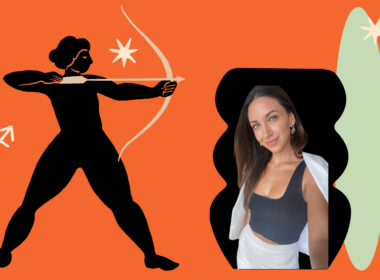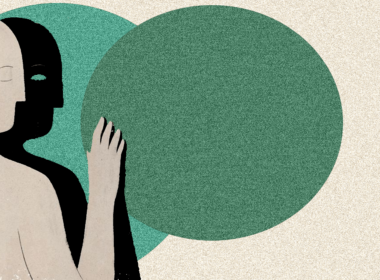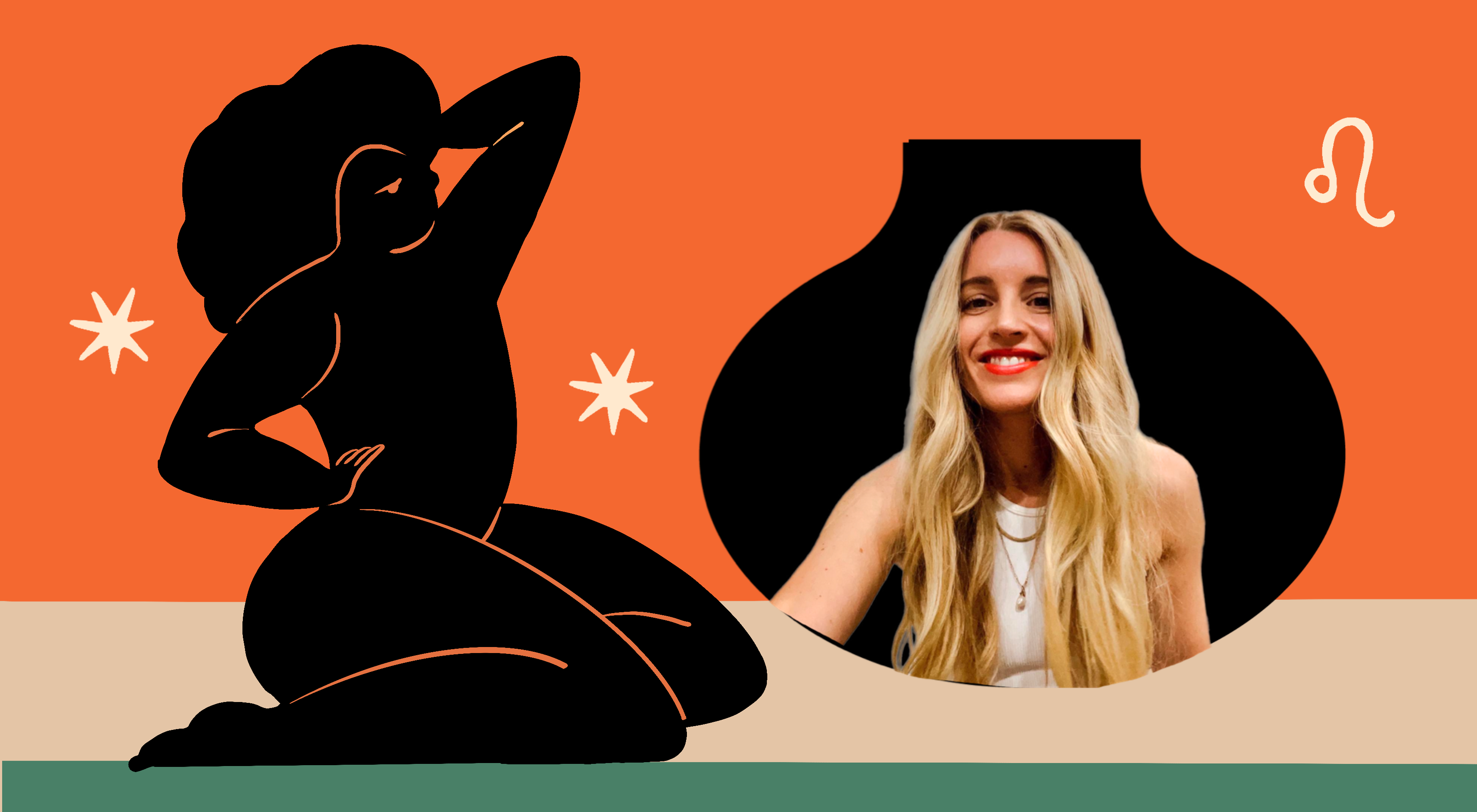Rythm is the trusted destination to discover, shop and learn about safer intimacy. We are on a mission to help humans connect better with their parts and partners. For our blog series “Humans of Rythm”, we interview founders, thought leaders, and experts in the sexual wellness space and share their responses with you.
Jennifer Lewis is the co-founder and CEO of Lex, a social media community for queer humans. She previously worked at Tia as their head of growth marketing. During her spare time you can find her hiking and coming up with bold ideas to rally people alongside her to bring them to fruition.
Read below to learn more about Jennifer Lewis, a vibrant Leo, and community leader for LGBTQ+ humans.
Where were you born, where did you grow up, and how was sex perceived in your culture/household?
I grew up in the UK, in Southeast England, in a Christian family. I definitely grew up with Christian values about sex which was “no sex before marriage”, although there wasn’t purity culture in the same way there is in the United States. I have a really pivotal memory of a song being on the radio that was about sex, and my mum turning it off and being like ‘we can’t listen to that’, even though I was a teenager. So, there was definitely this idea of sex being really special that you did with someone you were going to spend the rest of your life with, that was definitely what I learned growing up.
Why did you end up choosing your profession?
My connection to my profession is really a personal story related to the earlier question. I got married when I was around 30 years old, and met my husband when I was around 24. I was definitely in a very heterosexual version of what sex and love and relationships look like, probably had something to do with the way I grew up. In my early 30s I started to feel like I was in somebody else’s life and it wasn’t the one that I was supposed to be in. I ended up leaving my marriage and realizing that I was gay/bisexual, and entering into a relationship with a woman for the next 3 or 4 years. It was through that journey of me being in my early 30s only suddenly coming to terms with my own sexuality that I realized how much, I was really looking for a way to find queer community and connect with other LGBTQ+ people, and there was a world I knew nothing about and hadn’t really thought about before I accepted my own identity. It was during that time that I met Kel Rakowski, my co-founder at Lex. She had gone through a similar experience of coming out in her early 30s, and we both realized there was a real need for LGBTQ+ people to find social connection online and in real life in a way that wasn’t just dating focused. There were a lot of digital apps to find dates if you were LGBTQ+ but there wasn’t anything that allowed people to connect outside of dating. Really the insight is that your sex and sexuality is one thing, but you also want to connect with people in other ways, and really that’s how we built Lex.
And is there anything interesting about your industry that surprised you when you were first getting started?
Yeah I guess it’s 2 things. So we are a VC backed company and I think what is surprising is how hard it is to raise funding for anything that has LGBTQ+ or sex or anything that is associated with these kinds of industries is still very hard to fight for VC funding, especially if you’re female or female identifying or gay. The statistics are that less than 2% of VC funding goes to women. I think VC funding that goes to LGBTQ+ is less than 1%. So just how much stigma there is in the industry, whereas generational data shows that nearly 20% of Gen Z identify as queer. So there’s a huge market for it but there’s still catching up to do.
The second thing that was surprising was how much big tech really puts a wall up against anything in this space, with sex and sexuality, it’s very hard to advertise on facebook or talk about it on instagram, it’s the same with LGBTQ+ identities. For example, you get shadow-banned on TikTok if you say the word ‘lesbian’ too much. So there are a lot of frameworks that are in place that actually stop people from connecting and expressing their full sexuality and identity online and I think that’s a really big problem. It’s one of the reasons why we built our own platform, because we wanted to create a space where you could be fully seen and express who you are without any fears or filters.
Looking back on your childhood, what do you wish your parents or caregivers had told you about sex, love and relationships growing up?
What I did get from my parents was the idea of self worth in sex. I was very lucky that my boyfriend (when I was a teenager), his mum was really open about sex, so she really gave me the freedom to be sexual and have sex with him, and for that not to be a thing that was shameful. So what I wish my parents could have given me would be that same thing of, sex is something that you can choose to do, it’s pleasurable, it’s not to be hidden, it’s not shameful, which I didn’t get from my parents. But I was lucky that I was able to get it from another caregiver when I was a teenager, which really helped my perspective as I am now.
How do you find your rythm in connecting with your body and yourself?
It’s definitely been a practice over the past 5 or 6 years that I’ve really worked at. I know that for me when I am disconnected from my sexuality, that is like the number one sign that something bigger is wrong in my life. I really view my sexuality as my creativity and my life-force, and if that is stuck, everything else in my life is stuck. So the things I have found that keep me connected are, taking care of my body which is why yoga is really important to me, when I feel strong in my body that helps me feel sexual. Movement, dance, I really prioritize free dance. There are classes in NY that I love to go to, or just at home, but like really being free in my body and dancing really helps me too. Those are the 2 big ways. One more thing, openness about sex, and talking about it, like any sexual partners, or it being a thing that is part of my dialogue with people and having free discussion around it.
When do you feel the most empowered and alive?
I think it’s when I’m in movement, whether that’s in yoga, hiking out in nature, or making art. I make really big art pieces and I think the physicality of that feels really empowering and freeing.
What can a partner do to increase intimacy for you both in and out of the bedroom?
I’m a really physical person. If you reference the love languages, physical touch is definitely my number one. Being physically close to my partner in non-intimate times is really important, whether that’s touching my shoulder or just having moments of physical connection with me that are outside of having sex is really important to me. That really helps intimacy. And then I think the second one is language. Being able to talk about our desires openly and talk about fantasies in person or over sex, instead of texting. Just having an open dialogue about sex outside of the moment when you are actually engaging in bedroom intimacy can really help me stay emotionally, physically and erotically connected with my partner.
Is there any symptom that prohibits you from experiencing pleasure? In and out of the bedroom, can be anything from stress, UTIs, etc.
Definitely the health stuff, like having a UTI, thrush, or bacterial vaginosis, those are all things that I’ve had symptoms of since I was a teenager. Those things make my body freeze up which is really frustrating. So definitely the physical things, but emotionally, if I’m disconnected from my partner and don’t feel close to them or heard or seen, I get shut down and I don’t wanna engage in intimacy.
Do you know what your attachment type is?
I don’t know, I think I vary. I can definitely be avoidant. I feel like I change between being secure, anxious and avoidant depending on different dynamics.
What is your favorite sexual wellness product that you can’t live without?
My favorite thing that I probably use the most, is I have this really beautiful vibrator that’s gold, and I’m a really aesthetic person. A lot of things I hate about the sexual wellness industry is the branding around sex toys and sexuality. There’s lots of brands like Dame and Maude that are doing a better job recently to create products that appeal to an aesthetic lifestyle. So my one, because it’s black and gold and looks beautiful, it’s probably the thing I use the most. It’s Lelo.
What is your Zodiac sign?
I’m Leo sun, Aries moon and Cancer rising.
Anything else you want the readers to know about your company?
Lex is actually inspired by the very first lesbian erotica magazine published in the US in the 70s, called On Her Backs. It was the very first time that porn and erotica was designed for women seeking women, and it was revolutionary at the time. It was the start of the feminist movement which was a really big thing. Lex was inspired by that magazine. On the back pages of these magazines there used to be personal ads where women would write a beautiful piece about themselves (who they were) and what they were seeking. The original Lex was inspired by those short text posts, and it was actually an instagram feed, where we got readers of instagram to submit their own personal ads and we’d post them on instagram and they would meet each other and find each other. We’ve had people get married off this, and off the back of that we crowdfunded for Lex, and then raised VC funding.
What’s your go-to song to get in the mood? Or, what song helps you find your ‘sensual rythm’?
Written by: Rythm







